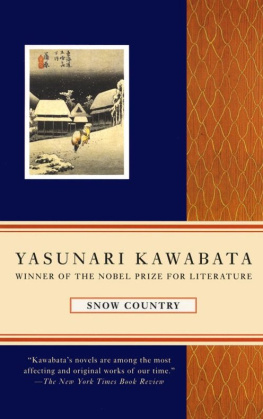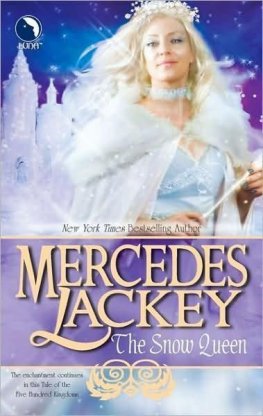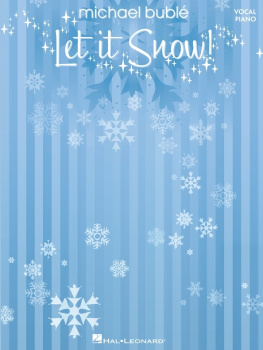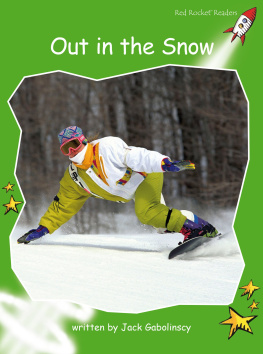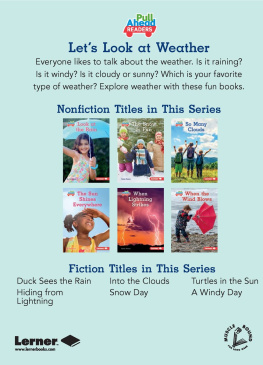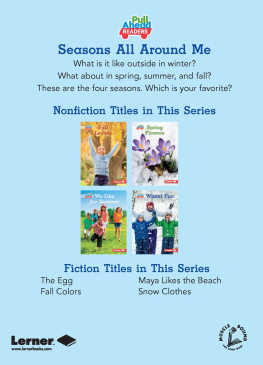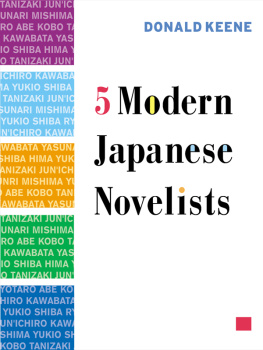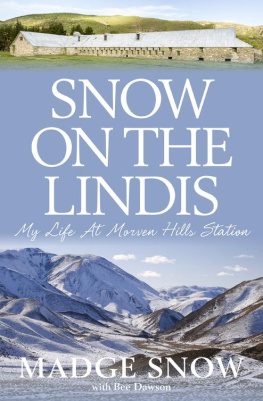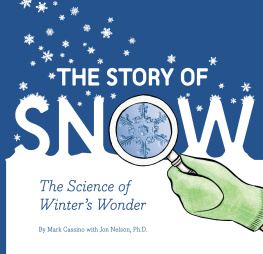Yasunari Kawabata - Snow Country
Here you can read online Yasunari Kawabata - Snow Country full text of the book (entire story) in english for free. Download pdf and epub, get meaning, cover and reviews about this ebook. year: 1981, publisher: Vintage, genre: Art. Description of the work, (preface) as well as reviews are available. Best literature library LitArk.com created for fans of good reading and offers a wide selection of genres:
Romance novel
Science fiction
Adventure
Detective
Science
History
Home and family
Prose
Art
Politics
Computer
Non-fiction
Religion
Business
Children
Humor
Choose a favorite category and find really read worthwhile books. Enjoy immersion in the world of imagination, feel the emotions of the characters or learn something new for yourself, make an fascinating discovery.
- Book:Snow Country
- Author:
- Publisher:Vintage
- Genre:
- Year:1981
- Rating:4 / 5
- Favourites:Add to favourites
- Your mark:
- 80
- 1
- 2
- 3
- 4
- 5
Snow Country: summary, description and annotation
We offer to read an annotation, description, summary or preface (depends on what the author of the book "Snow Country" wrote himself). If you haven't found the necessary information about the book — write in the comments, we will try to find it.
Snow Country — read online for free the complete book (whole text) full work
Below is the text of the book, divided by pages. System saving the place of the last page read, allows you to conveniently read the book "Snow Country" online for free, without having to search again every time where you left off. Put a bookmark, and you can go to the page where you finished reading at any time.
Font size:
Interval:
Bookmark:
YASUNARI KAWABATA
Translated from the Japanese by
EDWARD G. SEIDENSTICKER
Perigee Books are published by G. P. Putnam's Sons
200 Madison Avenue
New York, N. Y. 10016
Copyright (c) 1957 by Alfred A. Knopf, Inc.
All rights reserved. This book or parts thereof, may not be reproduced in any form without permission.
Published simultaneously in Canada by Academic Press Canada Limited, Toronto.
This is an authorized reprint of a hardcover edition originally published by Alfred A. Knopf, Inc.
Originally published in Japanese as Yukiguni.
Library of Congress Cataloging in Publication Data
Kawabata, Yasunari, 1899-1972.
Snow Country.
Translation of Yukiguni.
Originally published by Knopf, New York.
I. Title.
PL832.A9Y813 1981 895.6'34 80-39979
ISBN 0-399-50525-3
First Perigee Printing, 1981
Sixth Impression
Printed in the United States of America
IN THE WINTER, cold winds blow down from Siberia, pick up moisture over the Japan Sea, and drop it as snow when they strike the mountains of Japan. The west coast of the main island of Japanis probably for its latitude (roughly, from Cape Hatteras to New York, or from Spanish Morocco to Barcelona)the snowiest region in the world. From December to April or May only the railroads are open,and the snow in the mountains is sometimes as much as fifteen feet deep.
The expression "snow country," then, does not mean simply country where snow falls. Itmeans very specifically the part of the main island that lies west of the central mountain range.It suggests long, gray winters, tunnels under the snow, dark houses with rafters black from the smoke of winterfiresand perhaps chilblains, or, to the more imaginative, life divorced from time through thelong snowbound months.
The hot springs, one of which is the locale of Snow Country, also have a peculiarly Japanese significance.The Japanese seldom goes to a hot spring for his health, and he never goes for "the season," as peopleonce went to Bath or Saratoga. He may ski or view maple leaves or cherry blossoms, but his wife is usually notwith him. The special delights of the hot spring are for the unaccompanied gentleman. No prosperous hot springis without its geisha and its compliant hotel maids.
If the hot-spring geisha is not a social outcast, she is perilously near being one. The city geishamay become a celebrated musician or dancer, a political intriguer, even a dispenser of patronage.The hot-spring geisha must go on entertaining week-end guests, and the pretense that she is anartist and not a prostitute is often a thin one indeed. It is true that she sometimes marriesan old guest, or persuades him to open a restaurant for her; but the possibility that shewill drift from one hot spring to another, more unwanted with each change, makes her aparticularly poignant symbol of wasted, decaying beauty.
It is not by chance that Kawabata Yasunari has chosen a hot-spring geisha for the heroine and thedark snow country for the setting of this novel. Darkness and wasted beauty run like a groundbass through his major work, and in Snow Country we perhaps feel most strongly thecold loneliness of the Kawabata world.
Kawabata was born near Osaka in 1899 and was orphaned at the age of two. His short storiesbegan to attract attention soon after his graduation from Tokyo Imperial University.He presently became a leading figure in the lyrical school that offered the chief oppositionto the proletarian literature of the late twenties. Snow Country was begun in1934 and published piecemeal between 1935 and 1937. In 1947 a final installment was added,and the novel completed as it stands today.
Kawabata hs been put, I think rightly, in a literary line that can be traced back toseventeenth-century haiku masters. Haiku are tiny seventeen-syllablepoems that seek to convey a sudden awareness of beauty by a mating of opposite or incongruousterms. Thus the classical haiku characteristically fuses motion and stillness.Similarly Kawabata relies very heavily on a mingling of the senses. In Snow Countrywe come upon the roaring silence of a winter night, for instance, or the round softness ofthe sound of running water, or, in a somewhat more elaborate figure, the sound of a bell,far back in the singing of a teakettle, suddenly becomes a woman's feet. In the best of thedialogue, one brief sentence, often a double-entendre, is exchanged for another,much as characters in Japanese romances converse by exchanging brief poems.
The haiku manner presents a great challenge to the novelist. The manner is notablefor its terseness and austerity, so that his novel must rather be like a series of briefflashes in a void. In Snow Country Kawabata has chosen a theme that makes ameeting between haiku and the novel possible. The hero is a wealthy dilettantequite incapable of love, and the heroine a hot-spring geisha, clean in the midst ofcorruption and yet somehow decaying before our eyes. The two try to love, but love canmever bring them together. The nearer they are the farther apart they are. Shimamura,the hero, has built himself a half-cynical, half-wishful dream world, occupied by verylittle that suggests flesh and blood. He is an expert on the occidental ballet, but hehas never seen a ballet. Indeed we are given cause to suspect that he would closehis eyes if a ballet were set down in front of him. His love affair with Komako, thegeisha, is doomed from the start. Through her he is drawn to Yoko, a strange, intensegirl who, in Kawabata's image, glows like a light off in the mountain darkness; buthe can take neither Komako nor Yoko as a person. They can bring him no nearer theirhumanity or his own, and he presently knows that the time has come for him to leave.
Komako, for her part, has missed none of this. "You're a good girl,"Shimamura says affectionately in the climactic scene of the novel. But when, a momentlater, he unconsciously shifts to "You're a good woman." she sees that shehas been used. She too knows that he must leave. It would be hard to think of anothernovel in which so slight a shift in tone reveals so much.
The final scene only brings the inevitable. We know, as Komako staggers from theburning warehouse with Yoko in her arms, that Komako and Shimamura have parted.Shimamura will go back to the city and continue to play the cold dilettante, whileKomako will, as she herself has said, "go pleasantly to seed" in themountains. Yoko is the burden she must bear, and the burden is made heavier by thefact that the two women have twice been rivals in love, once, in a way never clearlydefined for us, with the dying Yukio, again with Shimamura. Little of this is stateddirectly. We are not even told whether Yoko is alive or dead at the end of the novel.If the reader finds the last few pages puzzling, however, he should remember thateverything has already been implicitly suggested. The novel has in effect ended withShimamura listening to the sound of the bell in the teakettle. The fire scene,beautifully written though it is, only emphasizes a point that has already been made.
Snow Country is perhaps Kawabata's masterpiece. He has found in Shimamura'slove affair the perfect symbol for a denial of love, and he has in the woman Komakoand in the shadowy beauty of the snow country fit subjects for the haiku-likeflashes that bring the denial forth. And, in the final analysis, the very successof the novel becomes a sort of affirmation of the humanity that is being denied.
E.G.S.
Font size:
Interval:
Bookmark:
Similar books «Snow Country»
Look at similar books to Snow Country. We have selected literature similar in name and meaning in the hope of providing readers with more options to find new, interesting, not yet read works.
Discussion, reviews of the book Snow Country and just readers' own opinions. Leave your comments, write what you think about the work, its meaning or the main characters. Specify what exactly you liked and what you didn't like, and why you think so.

